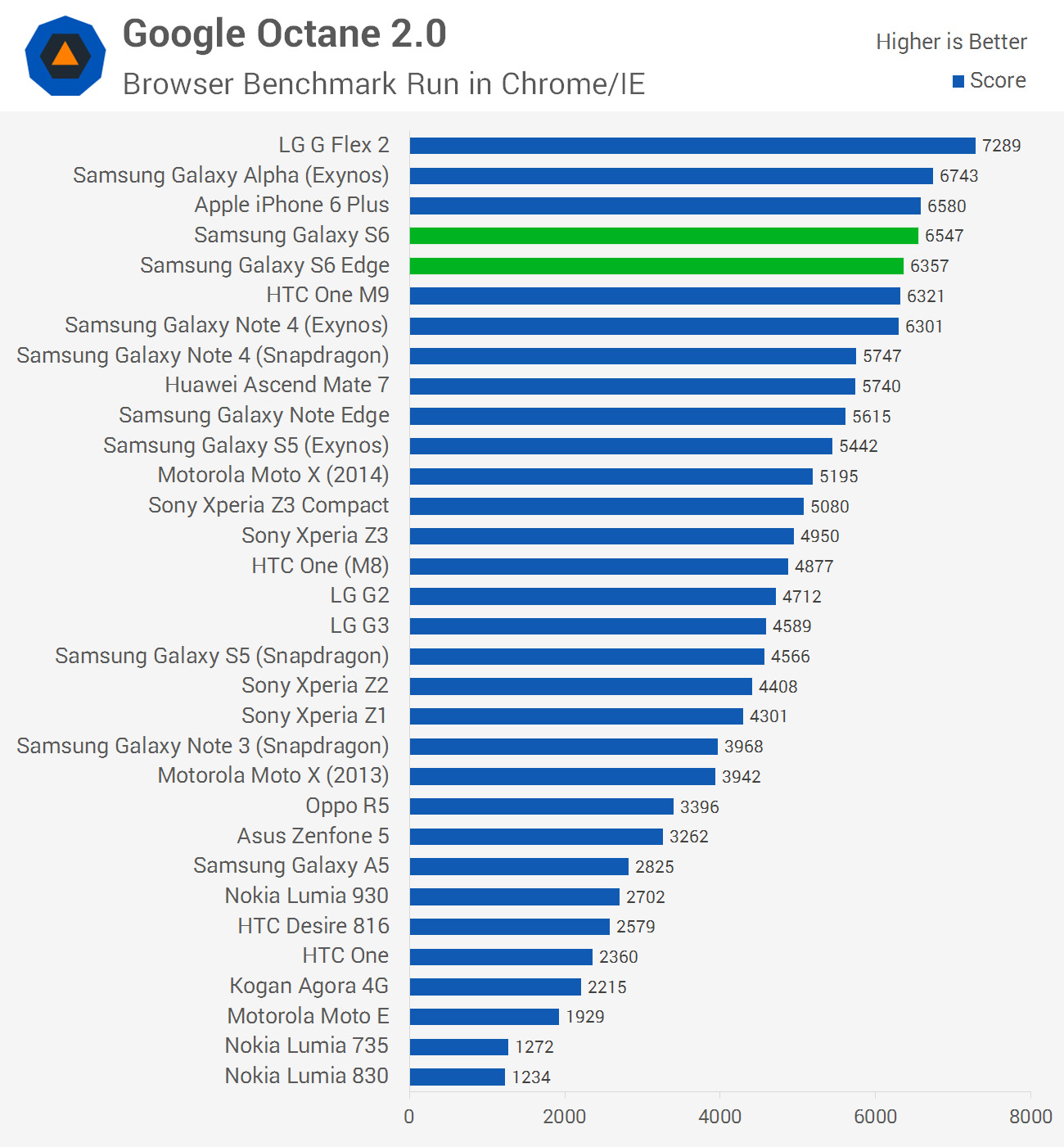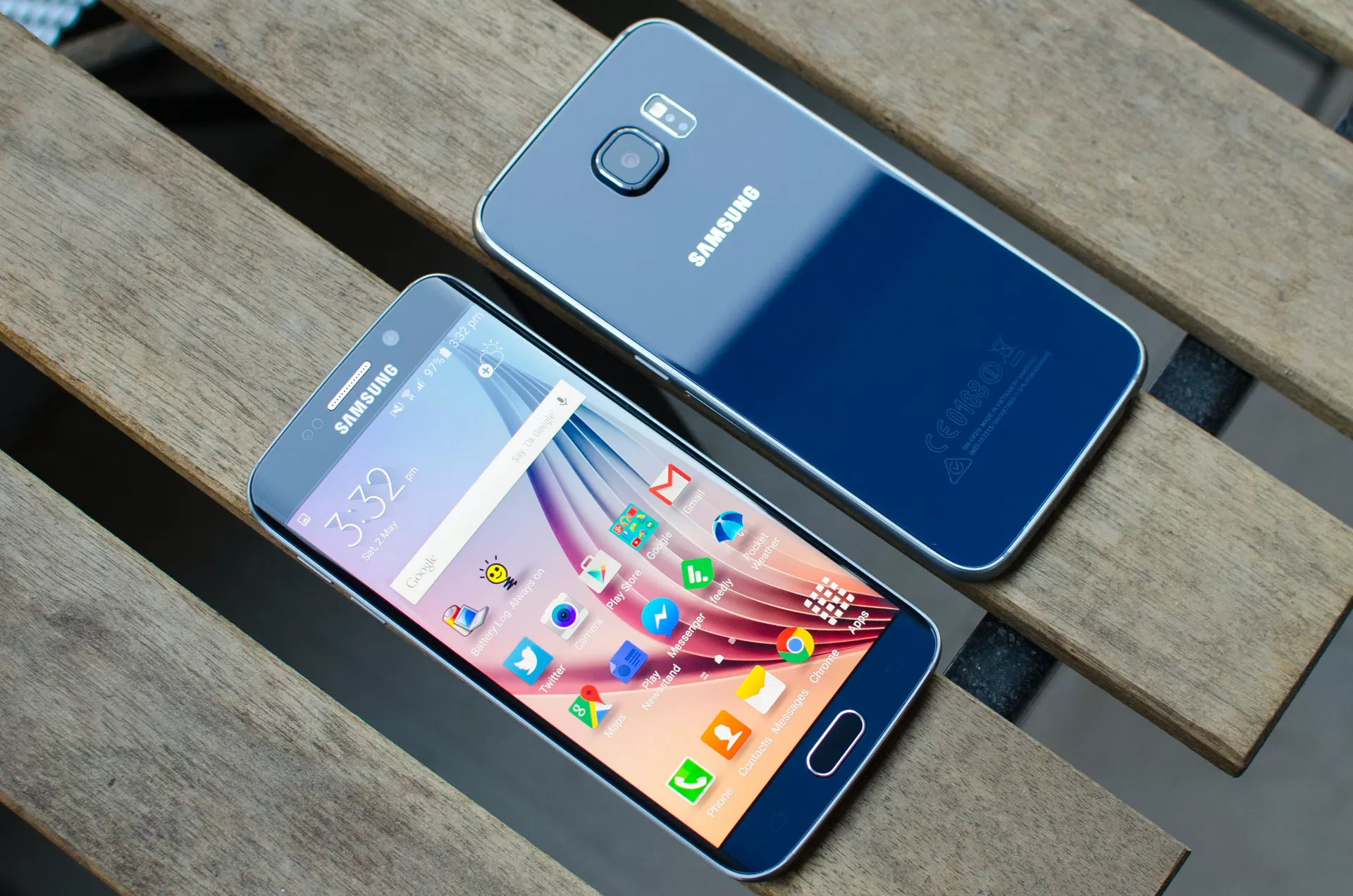CPU Performance
The Galaxy S6 is an extremely fast device to use, with class-leading multi-tasking performance that makes switching from app to app a breeze. Let's take a look at what the benchmarks say.






To start with, the Galaxy S6 comes within 1.5% of the Galaxy S6 Edge, so that essentially indicates identical performance. Comparing the Galaxy S6 to its predecessor, the Snapdragon 801-powered Galaxy S5, we're seeing 28% better CPU performance from the former. This lead extends to 34% up against the Exynos-powered Galaxy S5, which featured an Exynos 5422 SoC.
The Galaxy S6 is also 18% and 14% faster than the Exynos 5430-powered Galaxy Alpha and Exynos 5433-powered Galaxy Note 4 respectively in CPU-bound tasks. The Exynos 5433 is a particularly interesting comparison, as that SoC was Samsung's first to use Cortex A57/A53 CPU cores. With a clock speed boost of around 10-15% going from the Exynos 5433 to the Exynos 7420, it's not surprising to see a 14% performance improvement.
Of course the other major comparison to be made is between the Exynos 7420 and the Qualcomm Snapdragon 810, which Samsung reportedly ditched in favour of their own silicon, and is seen in devices like the LG G Flex 2 and HTC One M9. Here we're seeing a performance advantage of 18% in favour of the Galaxy S6, which is higher than expected considering the Exynos 7420, using the same array of CPU cores as the Snapdragon 810, is clocked just 5% higher on the A57 cores.
Overall this is a very good showing from the Exynos 7420, and it takes the CPU performance crown in the Android space.
